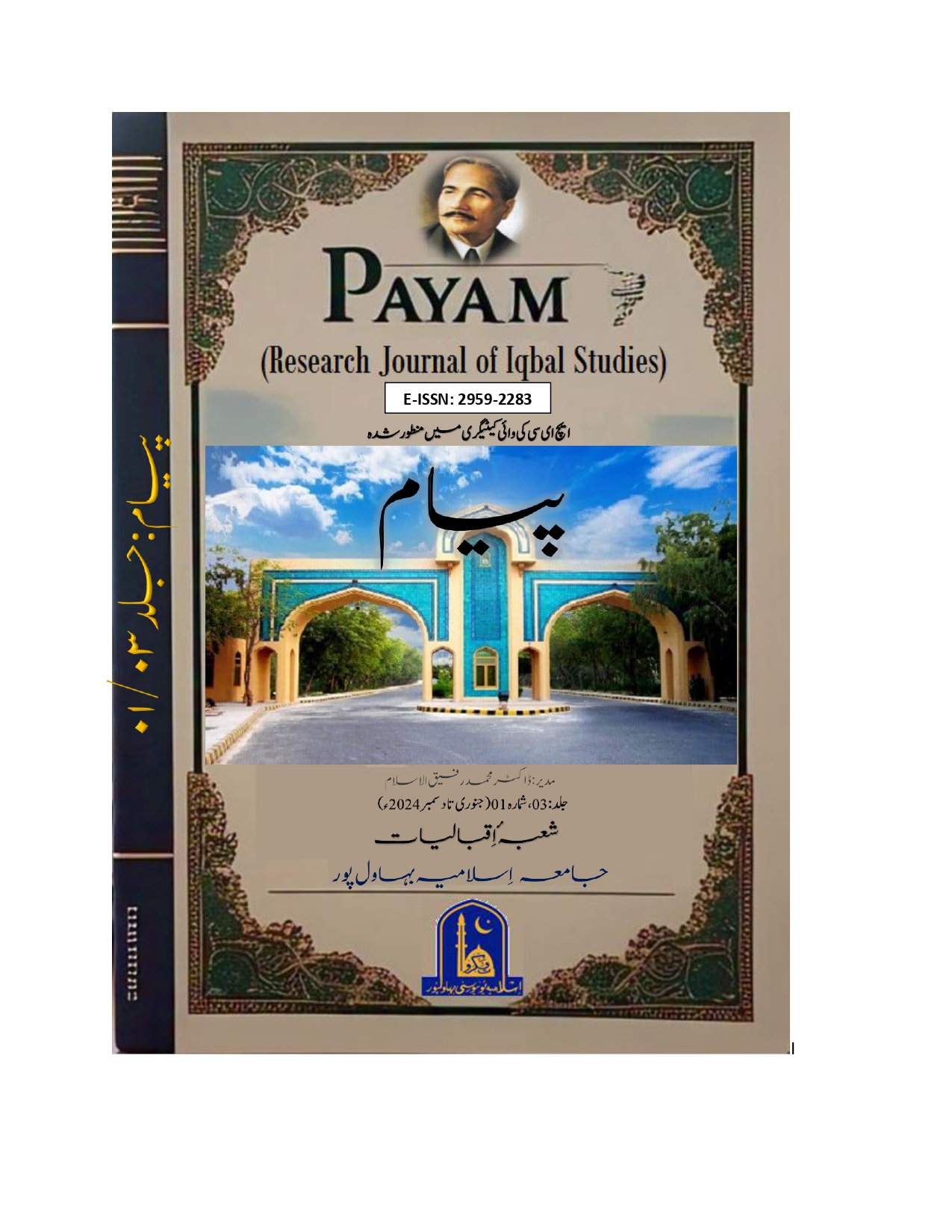اقبال کا تصور خودپرستی
Iqbal's concept of selfishness
Keywords:
Allama Muhammad Iqbal, Poetry, Philosophy, Humanity, Believed, Mistakes, self-determination, freedom, Khudi, self-righteousness and self-determinationAbstract
"Iqbal`s Concept of Self-righteousness" delves into the philosophical and moral views of the famend poet and philosopher, Allama Muhammad Iqbal. Central to Iqbal's notion is the belief of the self (khudi) and its evolution in the direction of a better ethical and non-secular state. Self-righteousness, in Iqbal's context, refers back to the man or woman's notion of their personal ethical superiority or righteousness, frequently main to a experience of vanity or self-satisfaction. However, Iqbal's concept is going past mere ethical judgment; it includes a dynamic method of self-cognizance and ethical growth. For Iqbal, proper righteousness isn't determined in stagnant self-warranty however withinside the non-stop striving in the direction of ethical excellence and self-improvement. He emphasizes the significance of introspection and self-attention in spotting one's obstacles and flaws, thereby fostering humility and empathy in the direction of others. Furthermore, Iqbal's idea of self-righteousness is carefully tied to his imaginative and prescient of man or woman and collective empowerment. He believes that proper ethical power arises from a deep connection to one's internal self and a experience of obligation in the direction of society. Thus, self-righteousness, whilst nicely understood and cultivated, turns into a catalyst for fantastic alternate and social progress. In summary, Iqbal's idea of self-righteousness encapsulates a nuanced information of ethical man or woman and private growth, emphasizing the chronic striving for distinctive feature and self-attention withinside the pursuit of a better moral ideal.




 PAYAM ( Research Journal of Iqbal Studies) by
PAYAM ( Research Journal of Iqbal Studies) by 